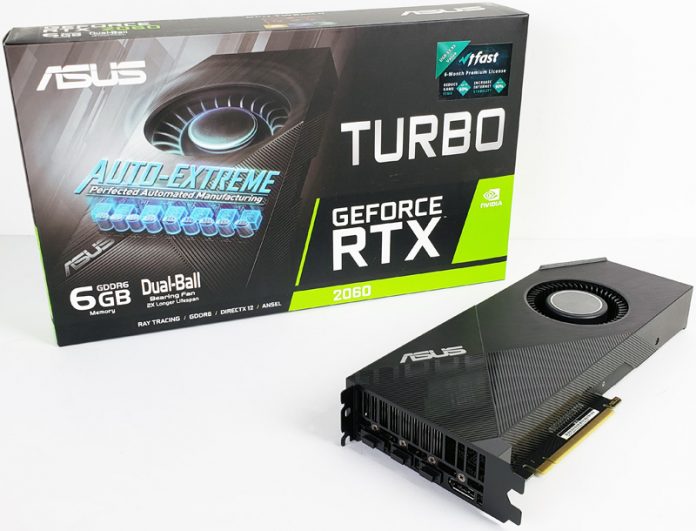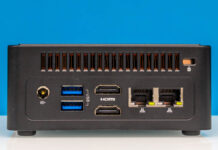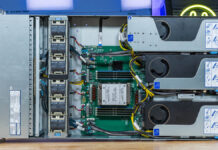At STH, we have a series running for blower-style cooler GPUs that can be used in high-density workstations or workgroup servers. Representing the NVIDIA RTX 2060 is the ASUS Turbo-RTX2060-6G blower style graphics card that is the subject of this review. This GPU follows the same build that we saw in the ASUS Turbo-RTX2080-8G Blower GPU, but has a TU106 graphics chips and lower RAM capacity at 6GB. Let us move on to our review.
ASUS Turbo-RTX2060-6G Overview
Like the retail box of the ASUS Turbo-RTX2080-8G, it is colorful and has all the features highlighted. The words “TURBO” and “RTX” are large to catch your eye on a retail shelf.
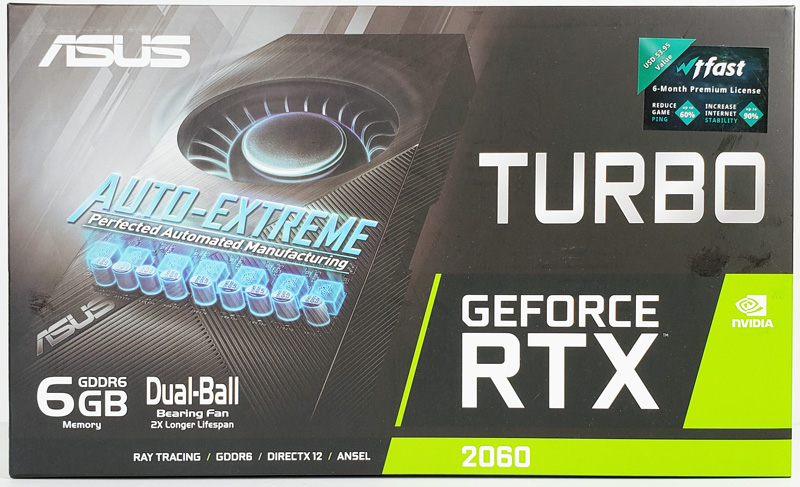
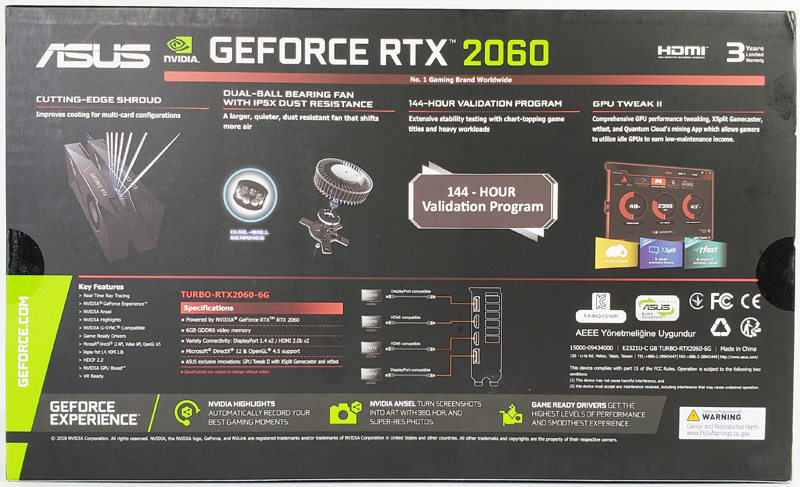
Only two items appear in the accessories loadout which is hardly needed, a driver CD and installation guide. The general rule of thumb is to download the latest drivers from NVIDIA and get the latest GPU Tweak from ASUS and your good to go.
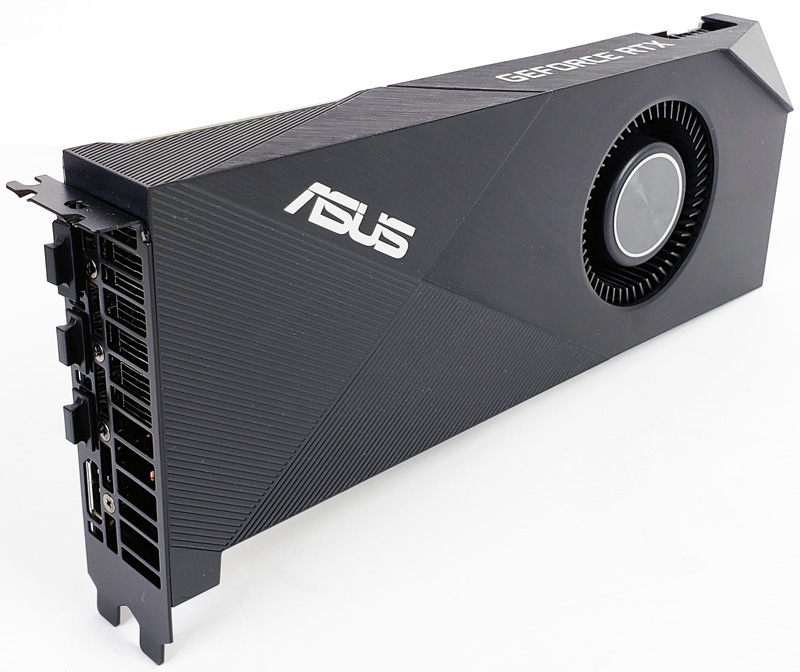
The Turbo-RTX2060-6G has a monolithic block design with an angled slope at the end of the card. Length of the Turbo-RTX2080-8G is 10.54,” and double-slot width. This allows the GPU to fit in small workstations and servers.
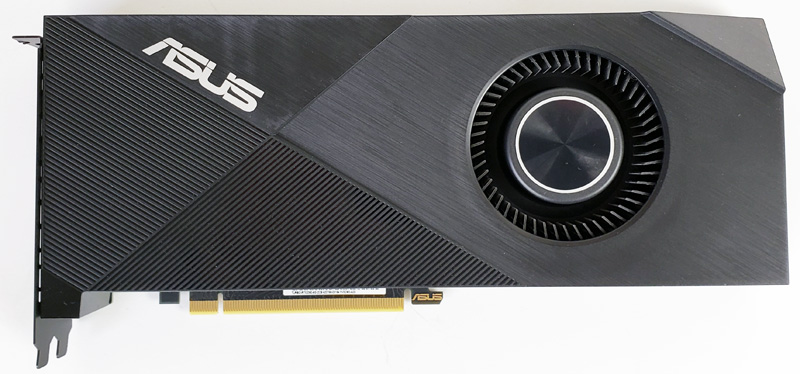
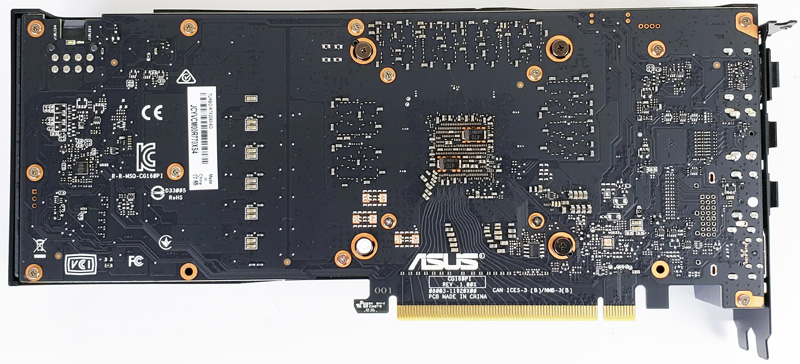
The front of the ASUS Turbo-RTX2060-6G offers a clean, smooth matte finish with a decorative finish of angled raised/grooved surfaces. The back does not have a backplate so take care when installing the card since components are exposed. Backplates also can help with cooling and structural rigidity so we wish that ASUS would have utilized one here.
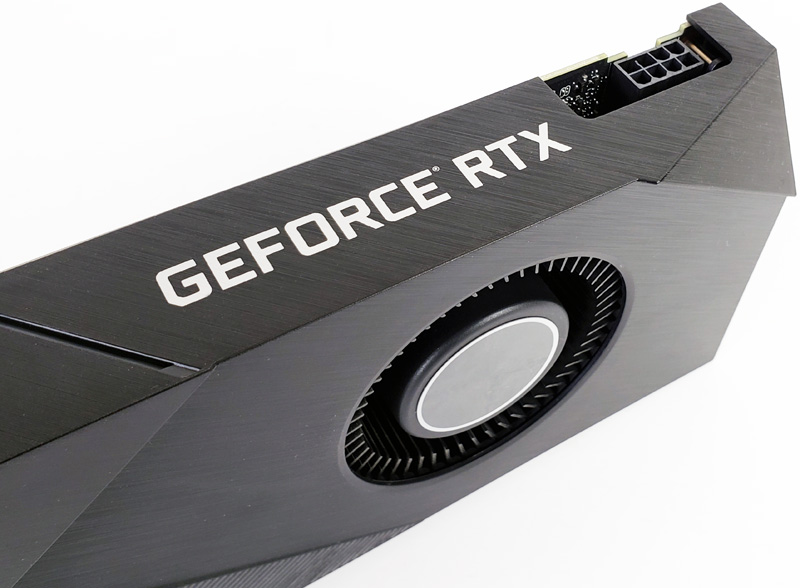
The ASUS Turbo-RTX2060-6G uses a single 8-pin input on top. This means that in most 3U servers/ chassis it will be challenging to fit the GPU plus power cables. It also means that the card will be fairly easy to integrate into existing systems as power and cabling demands are minimal. You will notice the slot cut out for the power connector is the same size as we saw on the TurboRTX2080-8G Blower which tells us they used the same cover for both graphics cards.
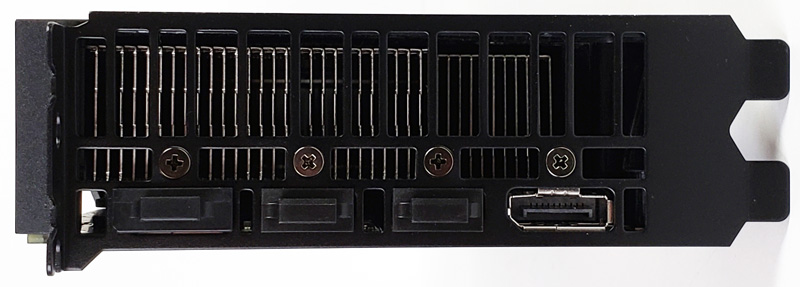
Display outputs provide 2x DisplayPort 1.4 ports and a 2x HDMI 2.0b ports.
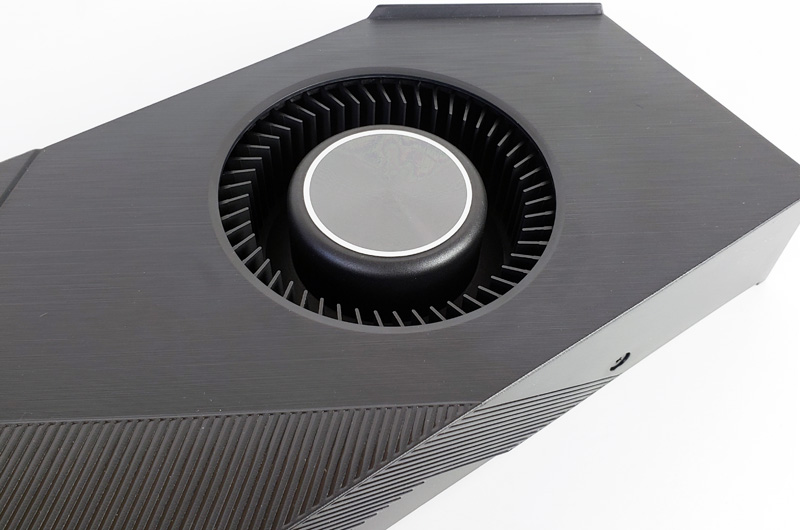
The blower cooler is typical for cards like this. ASUS uses an 80mm dual-ball bearing design which is IP5X dust resistant to protect against dust damage to internal components. For normal operation, the fan is reasonably quiet, but at full speed, it makes a fair amount of noise.
Next, we are going to do a quick specification check, and commence with our performance benchmarks.

